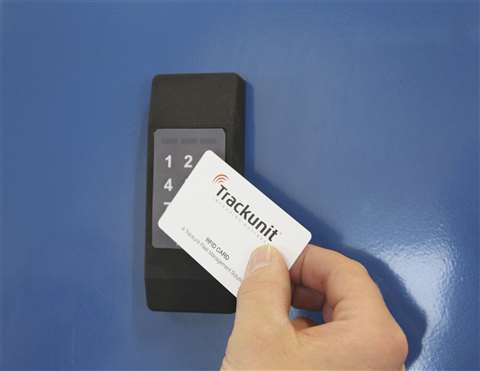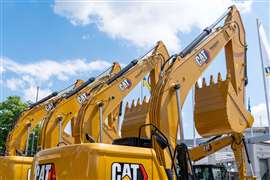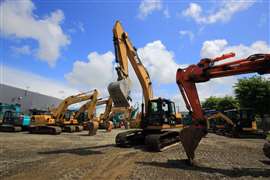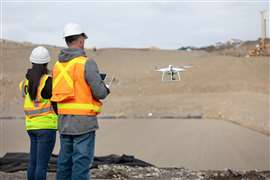Trackunit expects to double sales in 2015
22 October 2015

Telematics producer Trackunit is confident of market prospects in 2015 and is pursuing innovative product development with its new private equity backers behind it.
The company’s parent, M-Tec Holding, Pandrup, was acquired this summer by Goldman Sachs Merchant Banking Division and GRO Capital. The price of the deal was not disclosed but IRN understands it was around €100 million.
Trackunit founders Svend Hansen and Jesper Fjeldsø sold all shares in M-tec Holding and have no further link to the company. A new management structure is in place under the leadership of CEO Joergen Raguse who has more than 10 years’ experience in the organisation.
Speaking to IRN, Track unit marketing manager Kristian Kjaergaard said the company expected the positive trend and growth in sales it saw in 2014 to continue.
“In terms of licenses we expect to double our sales compared to 2014 – totaling approximately 150000 units worldwide by the end of 2015, with a stronger focus on machinery.
“For us the growth drivers are mainly a continuing increase in demand for machine telematics in existing segments in the European countries and an impressive growth in sales to new markets such as North America.”
Mr Kjaergaard said the company was continuously developing products and services. “In terms of hardware technology we have launched a new 3G tracker solution to match the development in cellular networks around the globe. Features such as multiple SIM-cards, ID-technology and CAN are other key elements.”
Personalised technology
He said technology was likely to get more personalised in the future. “The software platforms (online portal) is going to offer a more individualised and flexible presentation of machine data meaning you get exactly the information you need – anywhere. So personalisation will definitely play a role - as well as mobility where telematics runs on mobile devices such as tablets and mobile phones.
“This means that the utilisation of telematics among our customers expands when more employees benefit from the services offered by the telematics providers both at the office on multiple levels and in-field.”
And Mr Kjaergaard also forecast big changes for the telematics industry. “We believe that the industry is heading towards a higher degree of consolidation where companies merge into larger collaborations in order to capture export markets and strengthen development capabilities,” he said.
“You might call it a maturity stage on the provider side in some markets such as part of the EU where extended use of telematics has been present the longest.
“Continents such as Americas, Australia and Asia are estimated to be less mature in terms of machine telematics with a high sales potential for telematics providers. Simultaneously we see that many machine OEMs show an increased interest in CAN solutions and benefits through the entire supplier chain.”
Rental industry
In terms of demand for telematics from rental companies, Mr Kjaergaard said the industry’s interest in and understanding of the benefits by using telematics was growing – especially in some European countries.
“Rental companies discover the possibilities of improving revenue and ROI on machine investments, as mentioned at the Europlatform conference in Copenhagen recently. But the demand is still growing.
“Some years ago the focus was on tracking and security but this view has shifted into more advanced usage of telematics as a fundamental and integral business tool keeping track of maintenance, availability, operator safety, depot activity and much more.
“Telematics is just good business for the rental companies – it’s that simple! Take for example the ‘Deviation Report’ in the Trackunit Manager where you can monitor precisely if a machine is utilised according to contract and alerted in case of mismatch in hours - thereby eliminating all doubt about correct billing.”
Mr Kjaergaard also highlighted an operator ID-solution as a way of differentiating service in the rental market by focusing on safety.
“Here the machine operator can only start a machine using an ID-card or PIN-code when proper training has taken place and has been logged in the telematics system. This is both good for rental business and the renter. A typical telematics installation for rental companies pays for itself in only three-six months,” he claimed.






